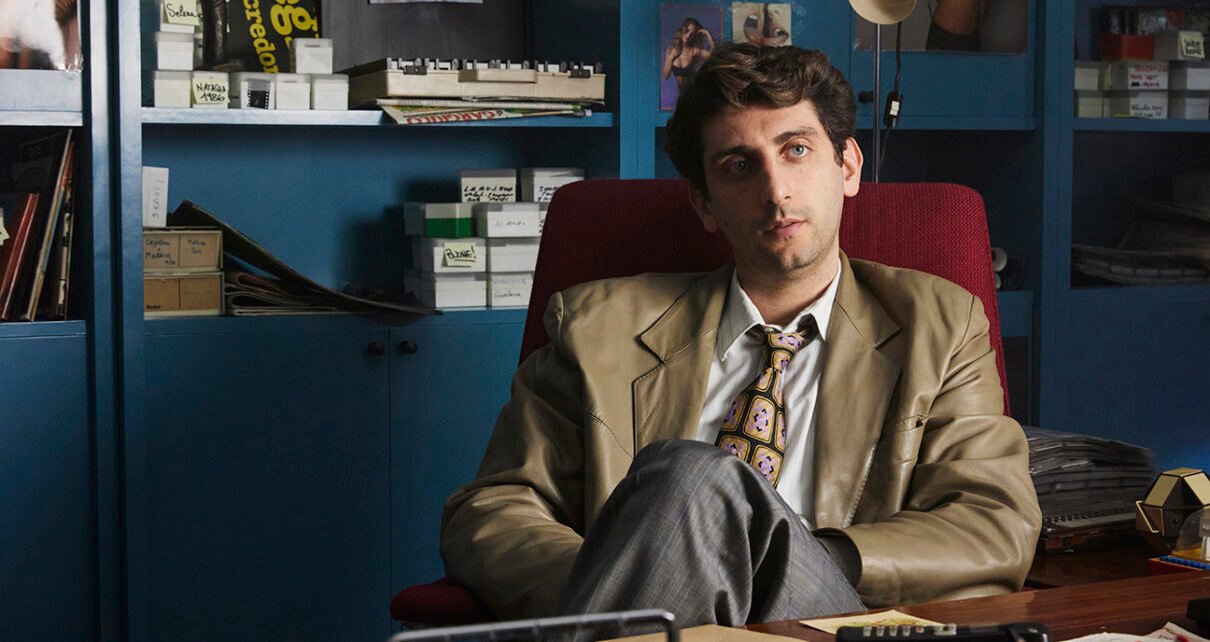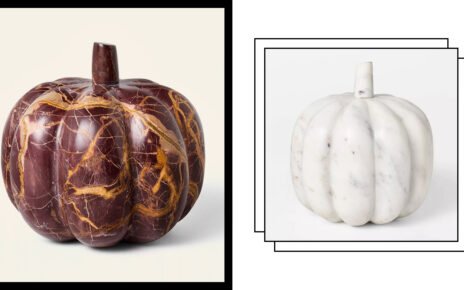Harking back to a simpler, more innocent time, when porn stars got elected to Parliament and the “sexual revolution” was still shiny and new, the comic-tragic feature Diva Futura pays tribute to the Italian adult entertainment empire of the same name and the colorful characters who founded and worked for it. Comparisons to Paul Thomas Anderson’s similarly themed Boogie Nights (1997) will be inevitable and probably not flatter the much messier, less bravura Diva Futura. Nevertheless, writer-director Giulia Louise Steigerwalt’s (Settembre) sophomore effort definitely has its moments and some standout performances.
Moreover, most of the characters met here — such as La Cicciolina (Lidija Kordic), aka Ilona Staller, the porn-star politician, and her tragic fellow star Moana Pozzi (Denise Capezza) — correspond to real-life figures. Only insiders from that time will know exactly how much of this movie (and the memoir by Debora Attanasio on which it’s based) is true. But fans of vintage porn probably won’t worry too much about its historical veracity, and anyway, the bigger story it tells about idealism versus the brutal forces of capitalism comes through quite loud and clear, if a bit shrilly at times.
Diva Futura
The Bottom Line
Porn to be wild.
Venue: Venice Film Festival (Competition)
Cast: Pietro Castellitto, Barbara Ronchi, Denise Capezza, Tesa Litvan, Lidija Kordic, Davide Iachini, Marco Iermano
Director: Giulia Louise Steigerwalt
Screenwriter: Giulia Louise Steigerwalt, based on the book by Debora Attanasio
2 hours 9 minutes
The full title of Attanasio’s book is Don’t Tell Mom I’m a Secretary, subtitled Memoirs of a Normal Girl at the Court of the King of Hard, which pretty much sums it up. The Debora we meet in the early running, played with chipper warmth by Barbara Ronchi, is a can-do personal assistant who gets swept up in the whirlwind of her energetic employer Riccardo Schicchi (Pietro Castellitto). One of her first tasks when she accepts an administrative position with Riccardo is feeding the dozen-plus cats in the back office — a room that’s later given over to the Cicciolina’s snake and eventually dozens of rabbits, demonstrating that the Italians were way ahead of the curve in terms of keeping emotional support animals in the workplace.
Naturally, the implication is that the business itself is just as much of a crazy menagerie, with Riccardo as the affable ringmaster. Steigerwalt’s script portrays him as a nurturing producer who feels affection and pride for the women he brought into the adult entertainment industry. Of course, he feels a bit more for Éva Henger (Tesa Litvan), the Hungarian performer with whom he ends up in a rocky marriage. But the film and Castellitto basically paint him as a charming naïf who truly believes that depictions of hardcore sex will liberate the human spirit somehow.
That’s the philosophy that guides him to set up Diva Futura, supposedly, just as a faith in the magical power of “love” prompts Staller to run for office. Those who remember the 1980s and 1990s will know that her own marriage to the American artist Jeff Koons — barely seen here as a character and seldom even mentioned by name, probably for legal reasons — rather demonstrated the shortcomings of that guileless belief system. Nearly everyone apart from Debora ends up disillusioned and victimized over the course of the story. But the critique of pornography itself here seems to boil down to the idea that bad people got involved and ruined things, rather than to any kind of trenchant analysis that, say, philosopher and anti-porn writer Andrea Dworkin might have recognized.
In technical terms, by far the film’s greatest weakness is its disordered editing style, which hops back and forth and back again all over the place in time. The constant shifts are at least are signaled by date stamps, changing hairdos and aging makeup, but there’s no obvious rationale for all the jumping about — except perhaps that it keeps the film lighter, with happier times in the 1970s and ’80s to contrast the illness and despair later on. At least the period production and costume design prove to be a continual delight, reliably on point down to the hair ornaments and cut of the thongs.
Full credits
Venue: Venice Film Festival (Competition)
Cast: Pietro Castellitto, Barbara Ronchi, Denise Capezza, Tesa Litvan, Lidija Kordic, Davide Iachini, Marco Iermano
Production companies: Groenlandia, Piperfilm, Rai Cinema, Netflix
Director: Giulia Louise Steigerwalt
Screenwriter: Giulia Louise Steigerwalt, based on the book ‘Non dite alla mamma che faccio la segretaria’ (‘Don’t Tell Mom I’m a Secretary’) by Debora Attanasio
Producers: Matteo Rovere
Directors of photography: Vladan Radovic
Production designer: Cristina Del Zotto
Costume designer: Andrea Cavalletto
Editor: Gianni Vezzosi
Music: Michele Braga
Casting: Sara Casani
Sales: Piperfilm
2 hours 9 minutes




